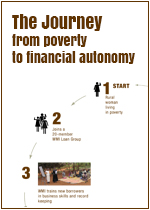Program Features
Overview
WMI provides a comprehensive loan program called the "Transition to Independence Program" (TIP) that offers impoverished, rural women four successive interest-bearing, six-month term business loans (collateral free), ranging from $100 to $250, in a highly structured environment.
Borrowers in 20-member solidarity groups cross-guarantee each other's loans; they receive skills and business training, peer mentoring, technical support, on-site follow up and on-going access to resources. WMI works with each borrower to prepare a business plan which provides a basic roadmap for the borrower to reach her economic goal. Simple marketing, business operations and management concepts are taught. Group activities allow the women to practice techniques for promoting their businesses.
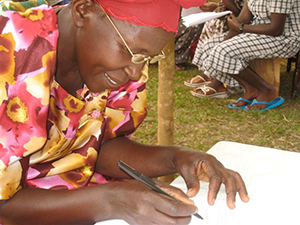
After 24 months, borrowers graduate from WMI's basic loan program. These entrepreneurs have developed a payment track, marketing skills and recordkeeping abilities; most businesses are successful enough to become self-financing. Borrowers open bank accounts and become financially independent. Those entrepreneurs who want to continue to expand operations and who need larger loans to meet the credit and cash-flow needs can apply for a WMI Jumbo Loan - up to $1,000.
The funds repaid to WMI by graduating borrowers are then recycled to provide loans to first-time borrowers entering the program. Each WMI loan hub location is administered on the ground by a woman-focused, village-level, local partner that is registered as a community based organization (CBO).

By providing access to collateral-free loans, training, and education through peer groups, impoverished, rural women experience immediate outcomes of launching micro enterprises, increasing their skills, and improving their ability to access traditional financing with success. The larger community improves exponentially as women increase economic opportunities for their households, increase local development through employment, and create community wealth.
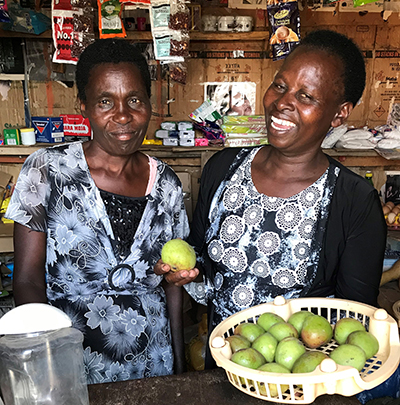
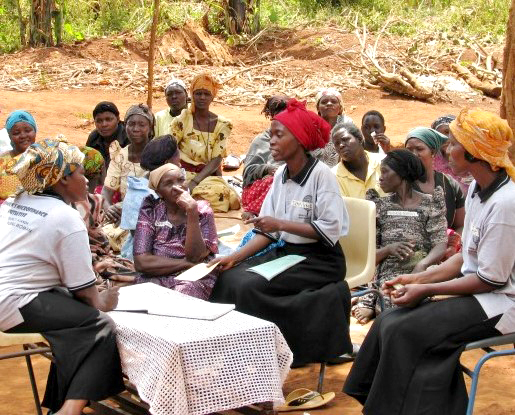




Loan Features
- Loan amounts of $100 - $250
- No collateral required for first loan
- Distribution through registered village-level organization
- 6-month term
- 10% flat interest rates for the loan term
- Successful borrowers are eligible for follow up loans
- Loan groups of 20 borrowers
- Weekly Support Group meetings
- Training, technical assistance, follow-up support
- Local Coordinators visit borrowers on a regular basis
- Regular reports provided to WMI
- Semi-annual surveys document program impact
Program Focus
WMI works with women on a village- level scale in very rural areas of East Africa (Uganda, Kenya and Tanzania) that have primarily agricultural-based economies. This is a region where roads are dilapidated, distances are great and transport is expensive. A reliable electrical grid still bypasses many villages. This is a cash-based economy, with new borrowers reporting per capita income at less than $1.25 USD per day.
Many WMI borrowers are AIDS widows, caring for 6 or more children, often not their own. They may be illiterate. They often live in mud-floored houses. Healthcare and sanitary living conditions remain an issue. Families have little savings for emergencies. Village women are extremely hard-working, have strong entrepreneurship instincts and leadership qualities, and work cooperatively together. Though not formally educated, they are natural businesswomen: intuitive, innovative, market savvy and able to adjust quickly to changing market conditions and opportunities.
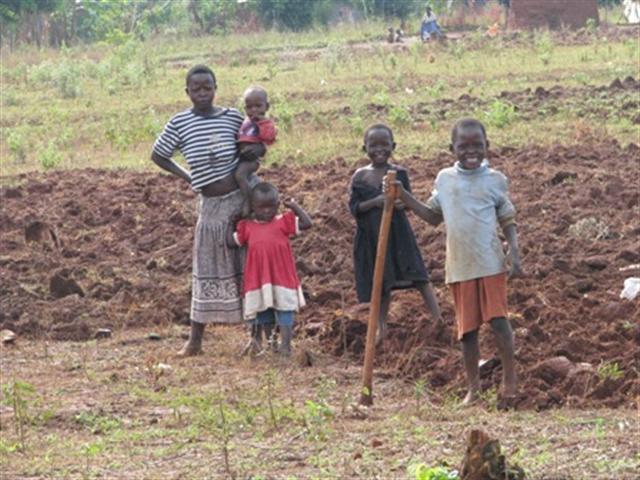
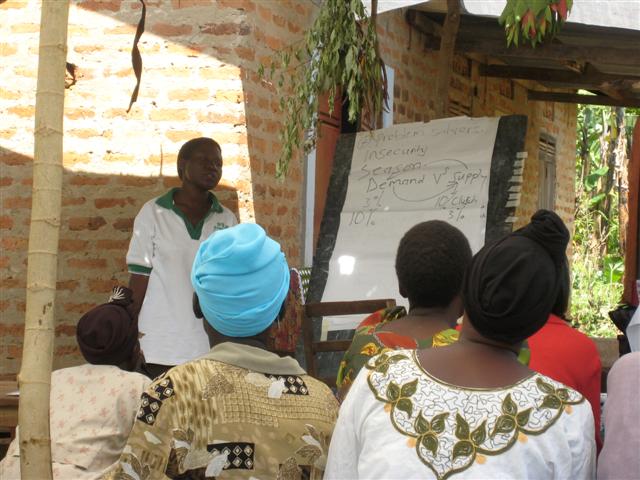
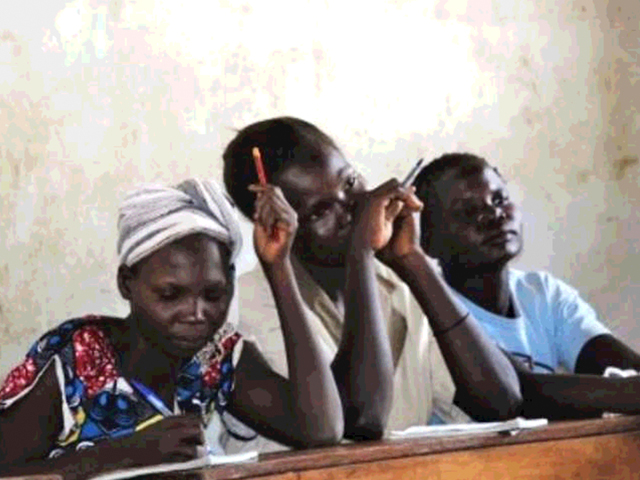
Business Training
WMI works with each borrower to prepare a business plan. Even though the enterprises are very small, the plan provides a basic roadmap for the borrower to reach her economic goal. Simple marketing, business operations and management concepts are taught and the training includes group activities that allow the women to practice techniques for promoting their businesses. Book keeping is emphasized and the lesson on "income minus expenses equals profits" usually draws applause.
Although many women living in developing countries have operated some type of micro-business to scrape together income for their families, very few have ever heard about the benefits of record keeping. WMI provides notebooks, pencils and calculators to enable the women to keep track of their business finances. WMI has 20 trainers trained through the World Bank Training-to-Train Program who orient all new village hub programs and who train the trainers in the new hubs.

WMI maintains close contact with its borrowers through Local Coordinators who visit all of the borrowers on a rotating basis. The Local Coordinators provide weekly reports of borrowers' progress in the loan program and assists them with book keeping and solving business problems.
By developing sound financial habits and a track record of successful loan repayment, WMI's borrowers can graduate to dealing with traditional financial institutions that offer an array of banking services that can help stabilize the consumption curve of the poor, such as: savings accounts, personal credit, school fee loans, pension plans and insurance. In its role as social entrepreneur, WMI is investing in human capacity building to promote sustainable economic empowerment.
The Journey
from Poverty to Financial Autonomy
WMI has developed this graphical illustration showing the steps toward financial autonomy and how the cycle is feeds back into itself.
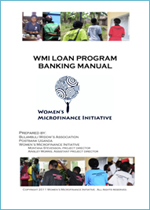
Transition to Independence
WMI has developed a proven a Banking Manual to provide borrowers with guidelines on their transition to independent banking.



